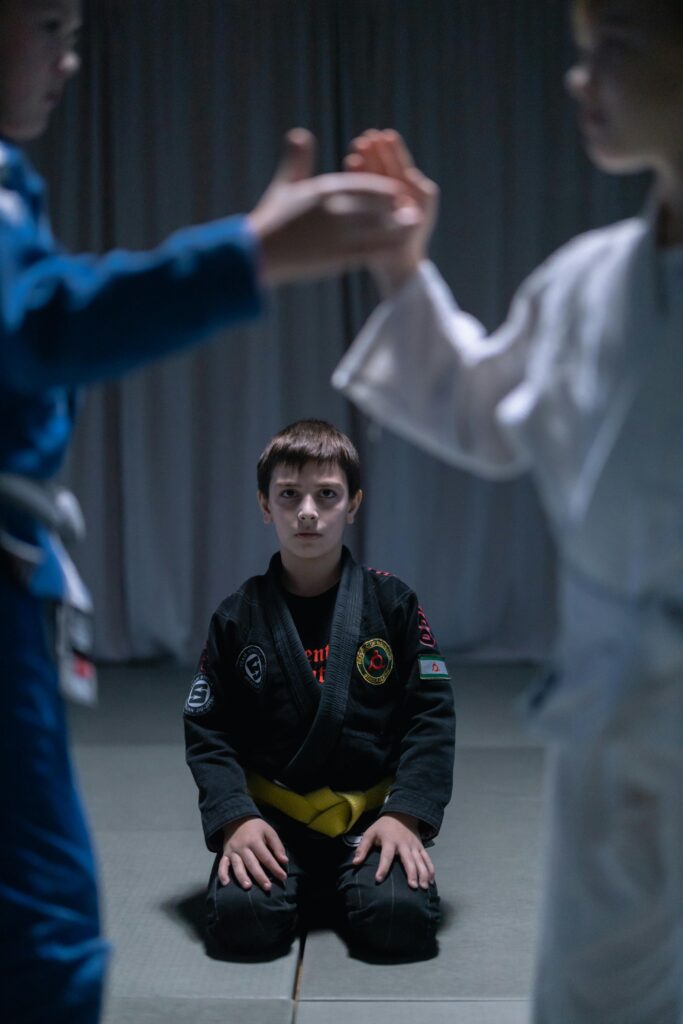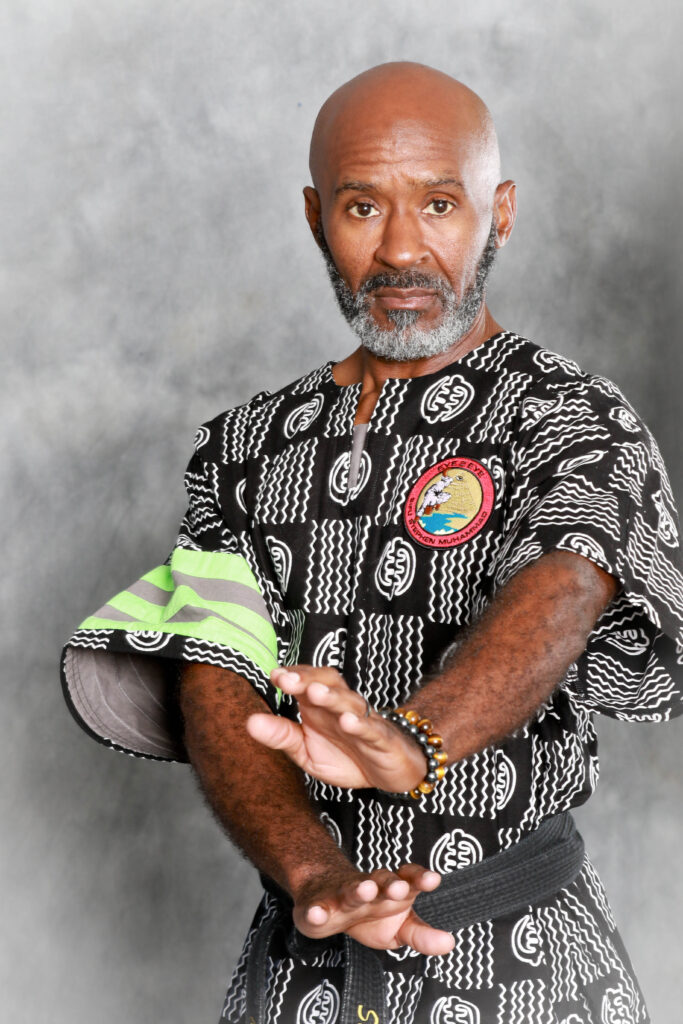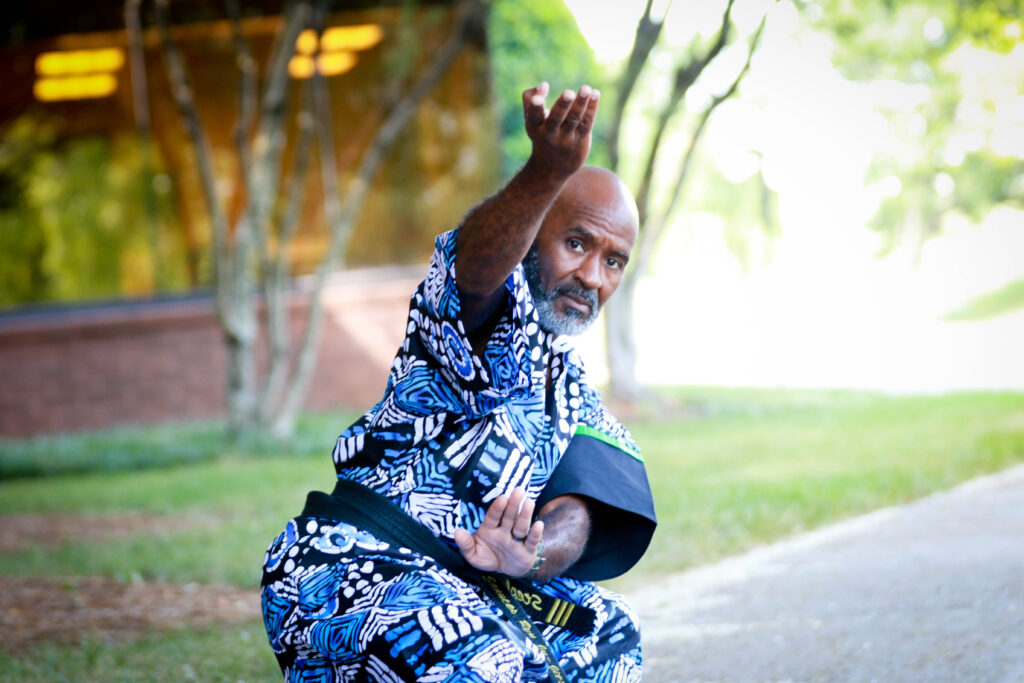Karate lessons are about much more than learning how to punch and kick. From the moment you step into the dojo, you start a journey that builds skills, boosts confidence, and elevates your fitness.
Whether you’re a parent curious about karate for your child or someone looking to take control of their own fitness and self-defense, karate offers a blend of mental and physical training that’s both practical and transformative.
I know the difference karate can make, and today, I’ll share what you can expect as you dive into karate lessons and the valuable life skills you’ll build along the way.
Why Choose Karate? An Overview
Karate has this amazing way of bringing together mind, body, and spirit. When people ask why karate, I always start by saying it’s about so much more than just learning to fight.
For centuries, karate has offered a path toward personal growth, discipline, and empowerment. You develop strength, flexibility, and endurance, but you also build focus, respect, and inner confidence.
Here’s what karate brings to your life:
- Improved physical fitness: karate keeps you moving and helps tone muscles.
- Mental clarity: routines help you focus and boost patience.
- Practical skills: yes, karate is great for self-defense in real-world situations.
Now let’s dive deeper into these incredible benefits.
The Core Skills Developed in Karate Lessons
Karate teaches you a set of core skills that go beyond just physical moves. You’ll be mastering specific techniques, stances, and moves, but you’re also building mental endurance and learning how to be adaptable and quick on your feet.
Strikes and Blocks
In karate, you’ll start with the basics of striking and blocking. Whether it’s a jab, punch, or block, you’re learning moves that are both powerful and effective in self-defense situations.
Stances and Movement
A solid stance is the foundation of karate. In fact, it’s where all other movements start. You’ll learn stances like the “Zenkutsu-dachi” (front stance) that teach you stability, balance, and agility.
Moving seamlessly from one stance to another makes you fluid and prepares you to handle attacks with confidence.
Coordination and Reflexes
Karate sharpens your coordination. The repetition of moves builds muscle memory so that your body knows what to do without hesitation.
This comes in handy not just in the dojo but in daily life, improving your reaction times and making you more aware of your surroundings.
Fitness Benefits: Building Strength and Endurance
Karate lessons naturally incorporate exercises that boost your strength, flexibility, and endurance. You’ll notice the change in your body, from increased stamina to improved muscle tone.
Here’s a breakdown of the fitness perks of karate:
Cardio and Endurance
Karate involves plenty of movement—kicking, punching, and moving from one stance to another. This keeps your heart rate up and boosts endurance. It’s a great cardiovascular workout that doesn’t feel repetitive or dull.
Muscle Tone and Flexibility
Karate lessons are amazing for building muscle without the bulky weights. By practicing different forms, your muscles work against gravity, and you gain lean muscle and flexibility.
Kicks help stretch and strengthen your legs, while punches build up your upper body.
I’ve had students come in for karate who weren’t fitness fans but found they loved the workout element of it. It’s a full-body exercise that strengthens and tones, but in a way that’s functional. You’re building strength you can actually use.
The Mental Discipline of Karate
One thing I always say is that karate isn’t just about physical strength. It’s also about mental discipline. The focus and patience you gain in karate practice benefit you in almost every area of life.
Karate forces you to be present, to focus on your movements, and to respect your body’s limitations while pushing through mental blocks.
Here’s how karate builds mental resilience:
Focus and Patience
In karate, focus is everything. You learn to tune out distractions and put your energy into your movements. This kind of focus can carry over into work, school, or any task requiring concentration.
Confidence and Self-Control
Karate builds self-confidence by helping you learn to control your emotions and responses. When you know you can protect yourself, you walk through life with a bit more assurance.
So, whether you’re a teen looking to find inner strength or an adult hoping to build mental resilience, karate is a great way to cultivate that kind of mental clarity.
Karate for Self-Defense: Practical Applications
Let’s talk self-defense. Karate lessons teach you skills that you can actually apply if you ever find yourself in a situation where you need to protect yourself or your loved ones.
Knowing these skills gives you peace of mind and can reduce anxiety in unfamiliar situations.
In karate, we focus on three main areas for self-defense:
Awareness and Reaction
Karate helps you stay alert to your surroundings. One of the first lessons we teach is awareness because it’s better to avoid danger than face it head-on. Karate also trains you to react quickly, so you’re not frozen by fear.
Effective Moves for Real Situations
The techniques you learn in karate are practical. You’re not just throwing flashy kicks; you’re learning moves that will help you break free, block attacks, or disarm an opponent when necessary.
Leverage Over Size
In karate, size doesn’t always matter. You’ll learn how to use leverage and movement to your advantage, making it possible to defend yourself even against a bigger, stronger opponent.
Finding the Right Karate Class for Your Needs
Choosing the right class is essential, especially if you’re new to karate or martial arts. Whether you’re a beginner or have some experience, finding a supportive environment with skilled instructors is crucial.
A good karate school will ensure you feel comfortable while still being challenged.
Here’s what to consider:
Instructor Experience
You want a qualified instructor who not only knows karate but can teach it in a way that makes you feel motivated and safe.
Class Size
Smaller classes offer more individual attention, while larger ones can provide a greater sense of community. Think about what works best for you.
Beginner vs. Advanced Classes
Most schools, like ours, offer classes for various levels. You might start in a beginner class to build your foundation and later move to a more advanced class as you gain experience and confidence.
Karate is for everyone. I’ve seen people from all walks of life join and thrive, from kids building self-discipline to adults wanting to stay fit. The key is finding a class that meets you at your level and grows with you.
What to Expect in Your First Karate Lesson
Walking into your first karate lesson can be a bit nerve-wracking, but don’t worry! Most beginner classes are designed to be welcoming and structured, so you’ll know what to expect.
Here’s a glimpse of what your first class might include:
Warm-Up and Stretching
Every class begins with a warm-up. This could be anything from light jogging to dynamic stretching, preparing your body for the moves you’ll practice.
Learning Basic Moves
Your instructor will likely teach you basic strikes, blocks, and stances. These are the building blocks of karate, so don’t rush. Each move is about form and control.
Cool-Down and Reflection
Classes usually end with a cool-down and a moment of reflection. You’ll have the chance to talk with your instructor about your experience and ask questions.
This part helps you feel more grounded and lets you carry the lessons of the dojo into the rest of your day.
Experience Life-Changing Karate Lessons Right Here at Eye2Eye Combat
Karate offers so much more than just fitness or self-defense—it’s a practice that builds strength, focus, and confidence that you carry with you every day.
At Eye2Eye Combat, we bring these values to life with classes designed to meet you where you are and push you forward. If you’re ready to step into a more empowered version of yourself, Eye2Eye Combat is the place to begin.
Join us, and let’s start building a foundation of skills and self-belief that will stay with you for life!
FAQs
Can I learn karate by myself?
Learning karate on your own can be challenging. Karate involves techniques that are best learned under guidance to ensure you’re using correct form and avoid injuries. Practicing some basics at home, like stances or simple movements, can help, but nothing replaces the feedback and community you’ll get in a class. Training with others really brings out the best in your skills and keeps you motivated.
What age is best for karate?
Karate is for all ages, and the best time to start really depends on the individual. Many start as young as 5 or 6, which helps build focus and discipline early on. But adults and even seniors find karate just as rewarding. Whatever your age, karate’s flexibility means you can set your own pace, so you’re always learning and growing safely.
How do I start karate?
Starting karate is easy, and we’d love to help you take that first step! You’ll begin by joining a beginner class where you’ll learn basic techniques, stances, and breathing. Eye2Eye Combat offers classes for all levels, so if you’re new, we’ll ease you into it with personalized guidance. From there, it’s about showing up, practicing, and letting yourself enjoy the journey.
Is karate easy to learn?
Karate is accessible, but like anything worthwhile, it takes practice. The moves and techniques build gradually, so you don’t need any special skills to get started. While you’ll have some challenging moments, it’s designed to be rewarding as you improve over time. With regular practice, karate becomes a natural extension of yourself, and the more you put in, the more you’ll get out of it.





